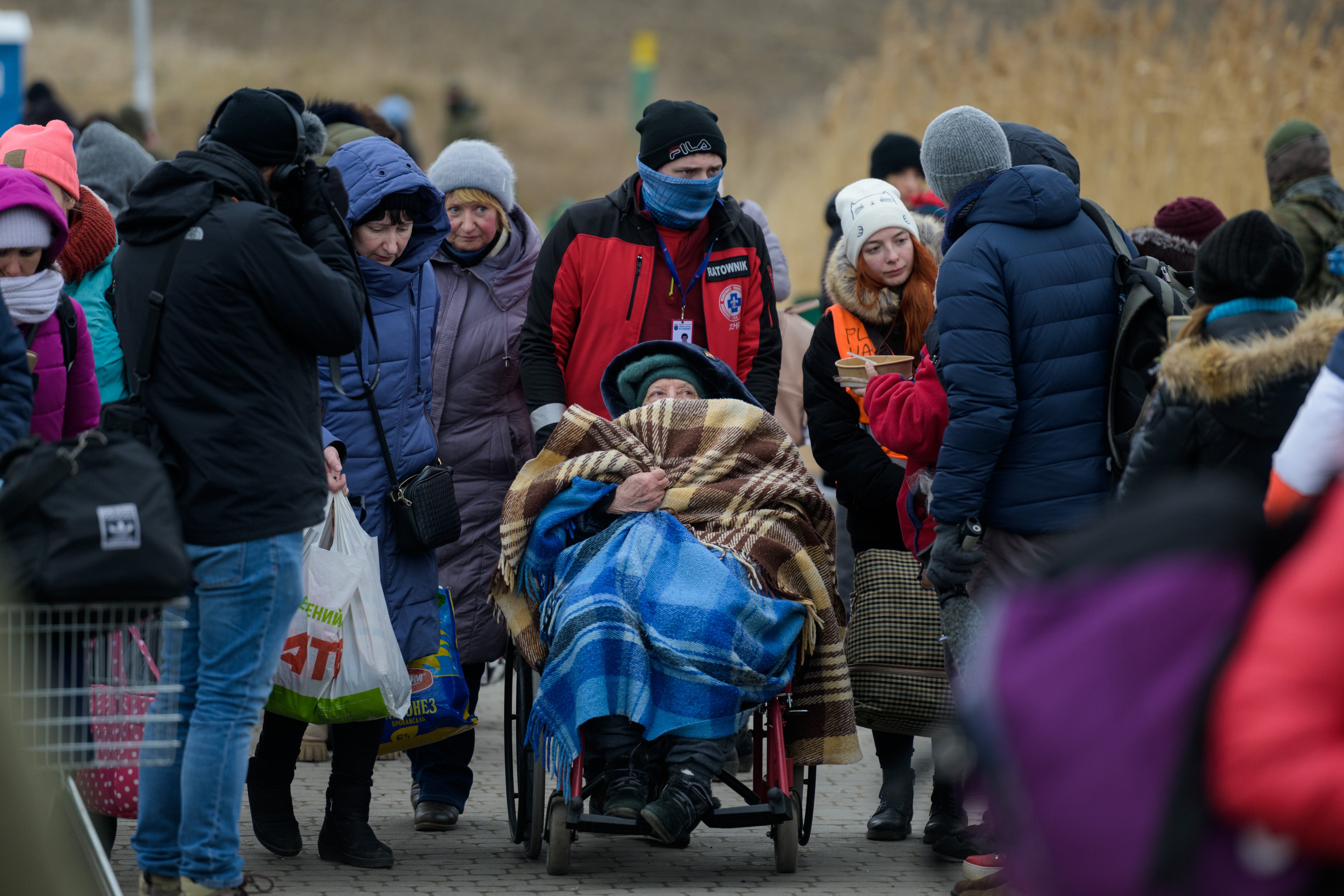Rise in Ukrainian refugees without family in Europe and nowhere to go- DEC
The number of children arriving into countries alone after fleeing Ukraine is also rising, the Disasters Emergency Committee said.

Your support helps us to tell the story
From reproductive rights to climate change to Big Tech, The Independent is on the ground when the story is developing. Whether it's investigating the financials of Elon Musk's pro-Trump PAC or producing our latest documentary, 'The A Word', which shines a light on the American women fighting for reproductive rights, we know how important it is to parse out the facts from the messaging.
At such a critical moment in US history, we need reporters on the ground. Your donation allows us to keep sending journalists to speak to both sides of the story.
The Independent is trusted by Americans across the entire political spectrum. And unlike many other quality news outlets, we choose not to lock Americans out of our reporting and analysis with paywalls. We believe quality journalism should be available to everyone, paid for by those who can afford it.
Your support makes all the difference.An increasing number of refugees are fleeing Ukraine without family in Europe to help them, while the number of lone children crossing the borders is rising, aid agencies are warning.
The most recent arrivals to countries surrounding Ukraine have few family ties, nowhere to go and are deeply traumatised, according to the Disasters Emergency Committee (DEC).
And their needs are potentially greater as they have fled the conflict later – at the point when the fighting reached their homes – with fewer possessions or resources, it said.
One DEC charity partner, providing aid in Poland, said the fastest-growing group is those who stayed in Ukraine “until they really had no choice but to run”.
This compares to earlier cohorts who had predominantly left to join family in Europe.
DEC also warned that neighbouring countries are struggling to keep up with the numbers arriving.
Some £175 million has been raised by DEC’s humanitarian appeal, including £25 million matched by the UK Government.
Madara Hettiarachchi, DEC’s director of humanitarian programmes and accountability, said the nature of the crisis is changing.
She said: “The first wave of people who fled the conflict in Ukraine mostly had connections and relatives in neighbouring countries.
“Now the people escaping have few family ties, have nowhere to go and are deeply traumatised from what they have seen and experienced.
“We are also seeing an increase in the number of unaccompanied children, and we can only imagine the fear and turmoil they are feeling.”
DEC said children and older people are particularly vulnerable, with many older people travelling with and looking after children.
Natasza Bogacz, who is working with Caritas Poland – a partner of DEC member charity CAFOD, said many of the earliest arrivals joined family in Poland who had fled the conflict in Ukraine in 2014.
She continued: “But now we’re seeing people who have stayed in Ukraine until they really had no choice but to run; people who evacuated in a matter of minutes.
“And they very often have no onward destination, nowhere to go. This seems to be the fastest-growing group.
“It’s hard because we don’t really know what’s going to happen to them, especially the older people. Many of them are very vulnerable and weak, but also they’re often in a very bad psychological state.”
Moldova has the highest number of refugees in relation to its population – 230,000 refugees in a population of 2.6 million.
Tatiana Sorocan, country director at HelpAge Moldova, said older refugees are unsure about their immediate and longer-term futures.
She said: “We are working hard to give them a sense of stability, while looking after their basic needs.
“Our primary focus is to ensure that they and those they are travelling with have enough cash to be able to buy essentials like food, medication, or warm clothes to protect them against the harsh conditions.
“Many of the older people we are meeting are travelling with children. This care giver role is crucial to the stability of refugee families and means that they need money and aid to support younger members of their family too.”
Dan Stewart, Save the Children’s head of news on the border with Romania, said one mother told him she and her three children had “two minutes” to pack up their lives and flee.
He said: “Children are incredibly resilient and they can bounce back from so much, but they need help.
“And that’s why we’re scaling up rapidly across the region to make sure that more and more children get the emotional support they need to recover.”
To donate towards the DEC’s appeal, visit: www.dec.org.uk
Subscribe to Independent Premium to bookmark this article
Want to bookmark your favourite articles and stories to read or reference later? Start your Independent Premium subscription today.